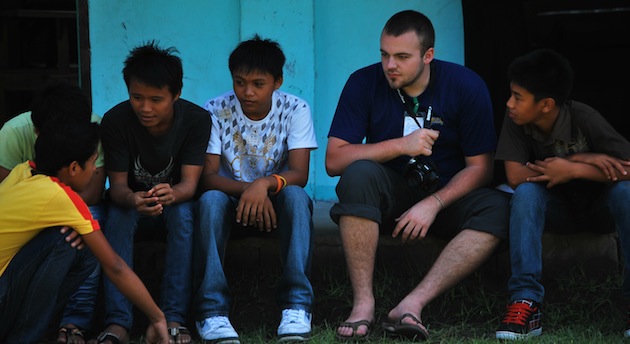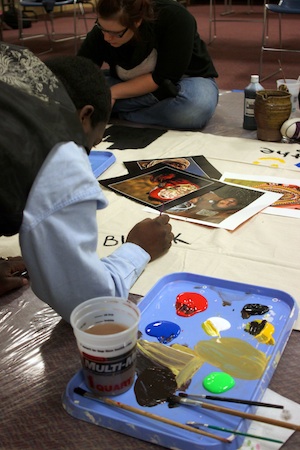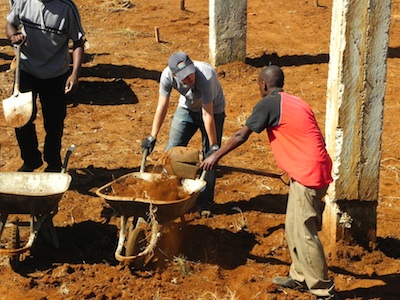
[dropcap3]A[/dropcap3]t first thought it seems as if faith and sacrifice are somehow extra-ordinary or supra-human. However, the Bible presents faith and sacrifice as fundamental to our humanity, but perverted due to sin. In the beginning God created Adam as king of the earth, not for his own power, glory, or majesty (compare with Nebuchadnezzar in Daniel 4:29), but to the glory of God. God commissioned Adam to serve Him as Vice-Regent of God’s kingdom in order to bring blessing and goodness to the earth. Adam’s reign was for God on behalf of all creation and the success of his reign was contingent on his faith in God and faithfulness to His Word (see Genesis 2). Inasmuch as Adam did not create himself or put forth his own agenda, he was called upon to trust God for all things and to give himself up as the servant of the Lord for the greater good. This is the essence of our humanity and can be seen in the description of Jesus Christ as the second Adam. In Philippians 2:5-8 Paul explains that Jesus emptied himself and became a man, a humble and obedient bond-servant. In the larger context, Paul is teaching the church to regard one another as more important than themselves. In this way, the church takes part in the life of Christ.

Faith and sacrifice are basic to living a genuine human life, but our sin turns everything upside down. Martin Luther, in his theology, speaks of how we are incurvatus in se. Luther explains, “It is easy, I say, to sense how we seek and love ourselves in all of this, how we are bent in and curved in upon ourselves, if not in what we do, then at least in what we are disposed to do.”1 (italics mine). Becoming a Christian means turning away from ourselves, turning from faith and trust in ourselves and from living only for our own good.
Becoming a Christian means living an authentic human life, curved out from ourselves (excurvatus ex se) for God’s glory and our neighbor’s good. Dietrich Bonhoeffer puts it this way, “It is laid on every Christian. The first Christ-suffering that everyone has to experience is the call which summons us away from our attachments to this world. It is the death of the old self in the encounter with Jesus Christ. Those who enter into discipleship enter into Jesus’ death. They turn their living into dying; such has been the case from the very beginning.”2 At the end of this paragraph, Bonhoeffer writes his well-known statement, “Jeder Ruf Christi fährt in den Tod.” Every call of Christ leads into death.
[blockquote align=”right”]We exhort our students to fulfill the student’s calling and to take what God has worked into their lives and turn outwards.[/blockquote]The PBU mission states that we educate students to serve Christ in the church, society, and the world. One of the institutional objectives to fulfill the mission is to develop the character of our students according to the teaching and example of the Lord Jesus Christ. A good gift from God to our students, a PBU education will benefit them spiritually, intellectually, and professionally. We exhort our students to fulfill the student’s calling and to take what God has worked into their lives and turn outwards. To study at PBU is an education in becoming a genuine human being, a humble, obedient bond-servant willing to give one’s life for others. Every call of Christ, even the student’s calling, leads to denying oneself and, like Christ, taking up the cross.
This year the theme of PBU’s Global Mission Week was on global Christianity. The church has made dramatic inroads into South America, Africa, and Asia. At the same time, the world has come to America with every major metropolitan region comprised of ethnic groups from across the globe. PBU graduates entering into the workplace will join an ever increasing multi-ethnic society. Global Mission Week is designed to educate students about these facts and prepare them for the cultural exchange they will encounter here and abroad. Behind all of this is the institutional commitment to prepare our students to give their lives to God on behalf of the church, society, and the world. Paul teaches us that in Adam all die, and in Christ all will be made alive (1 Cor. 15:22), one man for all. Following the teaching and example of the Lord Jesus implies that each student’s life is given for all. Like Adam’s calling in creation, whatever God has entrusted to the students, including their education, they are stewards of for the blessing and goodness of the whole creation.
 When students come to PBU they take on duties and responsibilities that are not part of the typical college education. In addition to their normal class load, we require them to participate in chapel three times a week; we ask that they participate in a weekly ministry; and we incorporate them into the PBU Community Life Covenant which lays out the implications of being a member of the PBU community and the biblical responsibilities they have toward one another. Since every student majors in Bible, those who want a bachelor’s degree in Education, Business, Social Work, or Music must add another semester or year to their education. The sacrifice of time and money is not lost on anyone.
When students come to PBU they take on duties and responsibilities that are not part of the typical college education. In addition to their normal class load, we require them to participate in chapel three times a week; we ask that they participate in a weekly ministry; and we incorporate them into the PBU Community Life Covenant which lays out the implications of being a member of the PBU community and the biblical responsibilities they have toward one another. Since every student majors in Bible, those who want a bachelor’s degree in Education, Business, Social Work, or Music must add another semester or year to their education. The sacrifice of time and money is not lost on anyone.